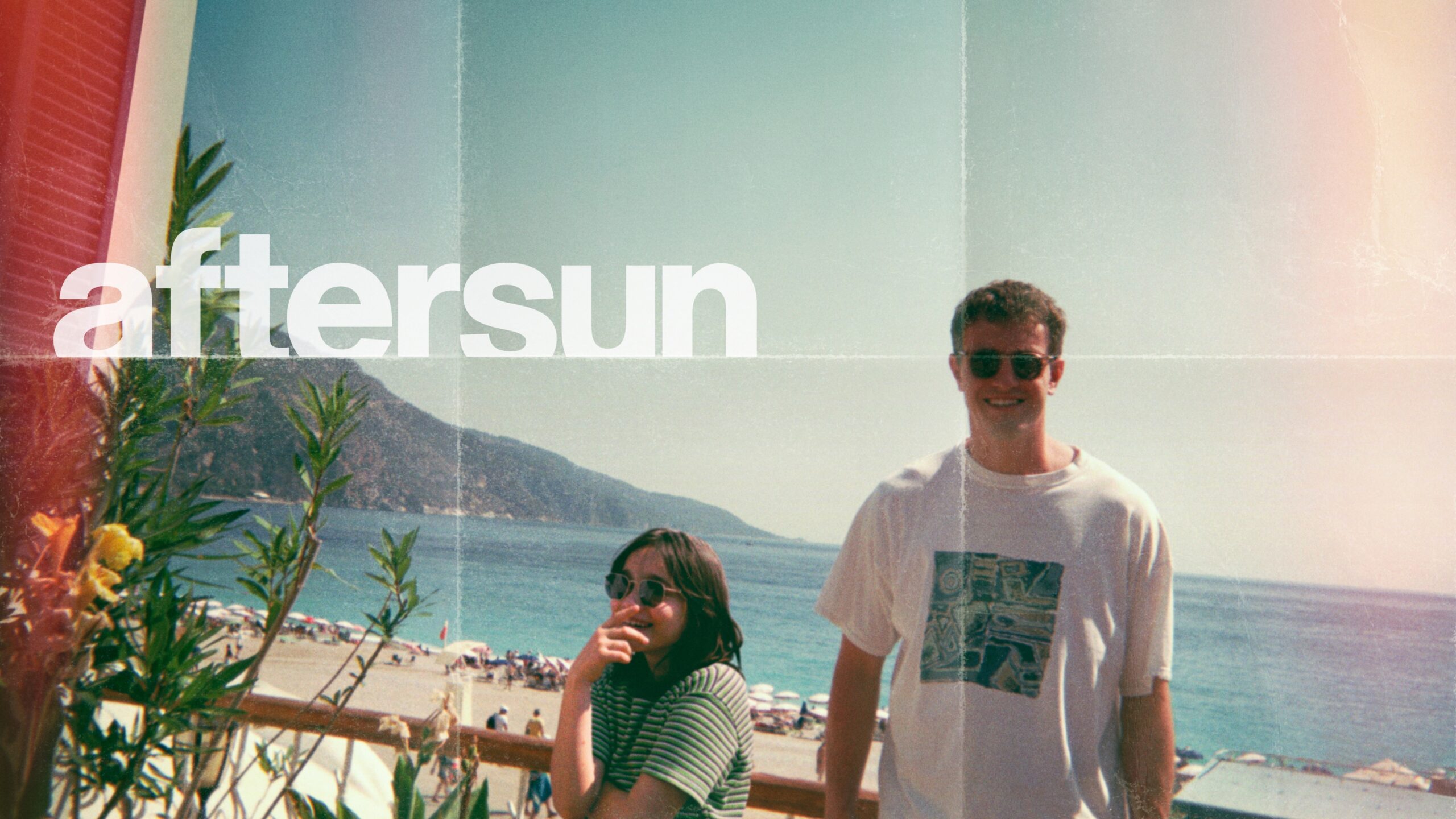‘Aftersun’ Movie Review
Camcorder footage in a film can sometimes be cliché. However, Charlotte Well’s first feature film shattered that and gave this shot type the attention it deserves. When seeing the marketing for this film, I was puzzled as to how Wells, a new Scottish director got A24 and Mubi to distribute her feature. However, after watching Aftersun I don’t even have to think twice about that.
Aftersun, a 96-minute film follows a girl (Sophie) and her father, (of whom she is close in age) on their vacation to Turkey. It features Frankie Core and the one and only Paul Mescal (our favourite, Phoebe Bridgers’ fiance!). Off the bat, the camcorder footage that is seemingly being taken by the protagonists at various times depicts joy as well as pain. In the best possible way, the film has no arc, just observations of Sophie’s vacation with her father who seems quite absent from her life. The film incorporates present-day Sophie as an adult, having dreams and memories of the vacation, as well as the mysterious identity of her father. As an audience, we get little to work off of, as 90% of the time we see mundane interactions during the time they spend together. That within itself is enough for the audience to feel the distance and pain between them. Wells wrote this beautiful story, depicting the evolution of relationships while trying to survive individual tenderness.

Personally, besides the story and score, the cinematography brought me to tears, which says something as I’ve only cried during this film and My Neighbor Totoro. The various stills intertwined with very slow pans stood out. Attention is directed at the silence, awkwardness and joy of what is in the frame. The immersivity of the shots forces audiences to pick up on everything, from a blink to a muscle twitch. Everything within the cinematography is done exceptionally well, so I want to spend only some of my time depicting every aspect. However, I will bring attention to the still medium shots of the camcorder footage playing on their TV, while they’re simultaneously filming. I’m pretty young so honestly, I don’t know if this is something camcorders do, but to my knowledge, they don’t. Anyway, the perspective of watching what is currently taking place through a TV screen is so powerful. Wells plays on that and makes the audience an insider, while simultaneously being a spectator, just like Sophie is when she’s an adult.
Wells’ writing and directing made space for the cinematography and other functions of the film to cooperate cohesively. She blocked the father in vastly interesting yet aesthetic ways. The shot that I see when I think of this film is the father randomly standing on the balcony’s slim railing, with his arms out wide. Wells puts him in one of the most well-known rhetorical movements for freedom while being physically vulnerable, even life-threatening. Decisions like these reiterate why films must strive to show, and not tell.
Wells hits you over the head again and again with scattered shots of Sophie in the present day at a rave while her father is there too. They begin to slowly interact with each other until the film’s final shots, and this is by far the most painful scene I’ve experienced (bonus points for playing Under Pressure by David Bowie).
The entirety of the film subtly depicts the duality of joy and numbness within familial relationships. Each scene is done so well, as contrasting tones compliment one another gracefully. Both happy and painful moments work together, creating the father’s mysterious attribute. An example of such is when audiences do not have context as to why Sophie’s father is always doing Tai Chi, yet she makes fun of his frequency in the activity. The omission of context also occurs in painful scenes such as Sophie’s father getting upset that she can’t get out of a wrist hold for a reason we don’t see.
Through Aftersun, Wells reflects on a common childhood experience. When we are young, we have no concrete idea about who we are, nevertheless who our parents are, even if we think we do. So, when being this young we may not understand the heavy complexities among loved ones. As a result, we have no choice but to simply feel.
Since seeing this film a month ago, I have not stopped thinking, reading and revisiting it. Wells portrays the common experience of lacking a connection with a parent. The importance of the emotional experience of these relationships while maturing was portrayed beautifully by Wells.
Aftersun is a commentary on child-parent relationships, as well as existing with others while tenderness is so considerably present.
